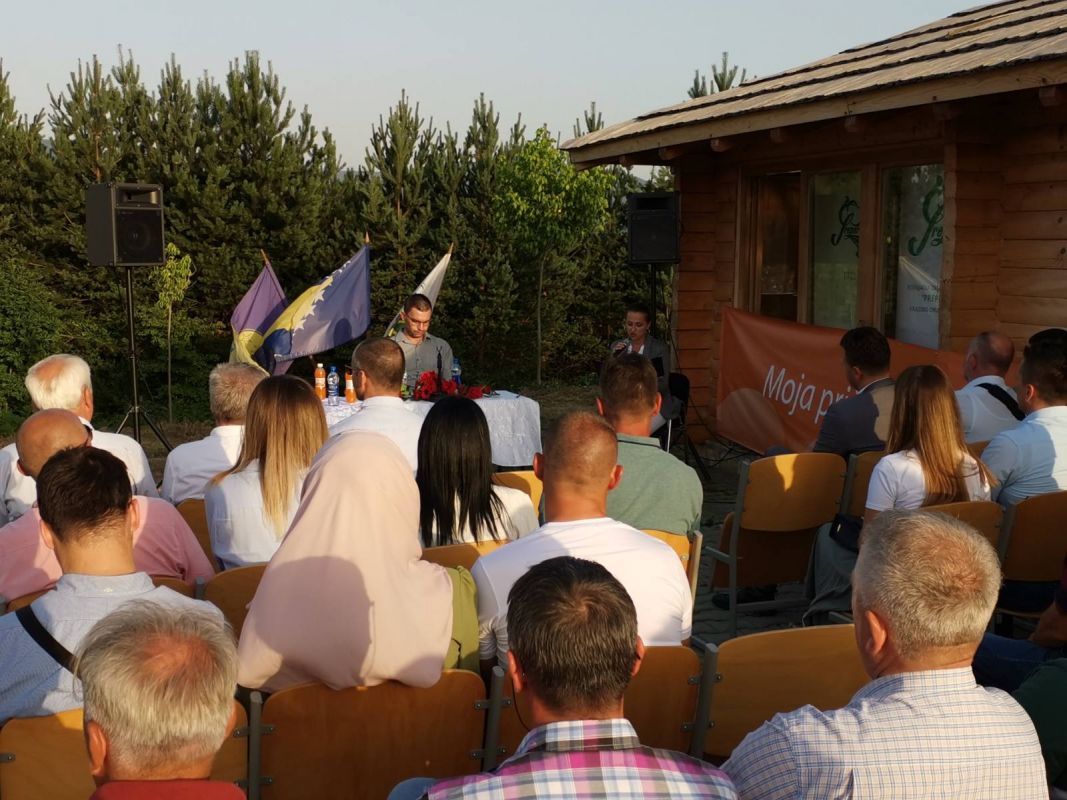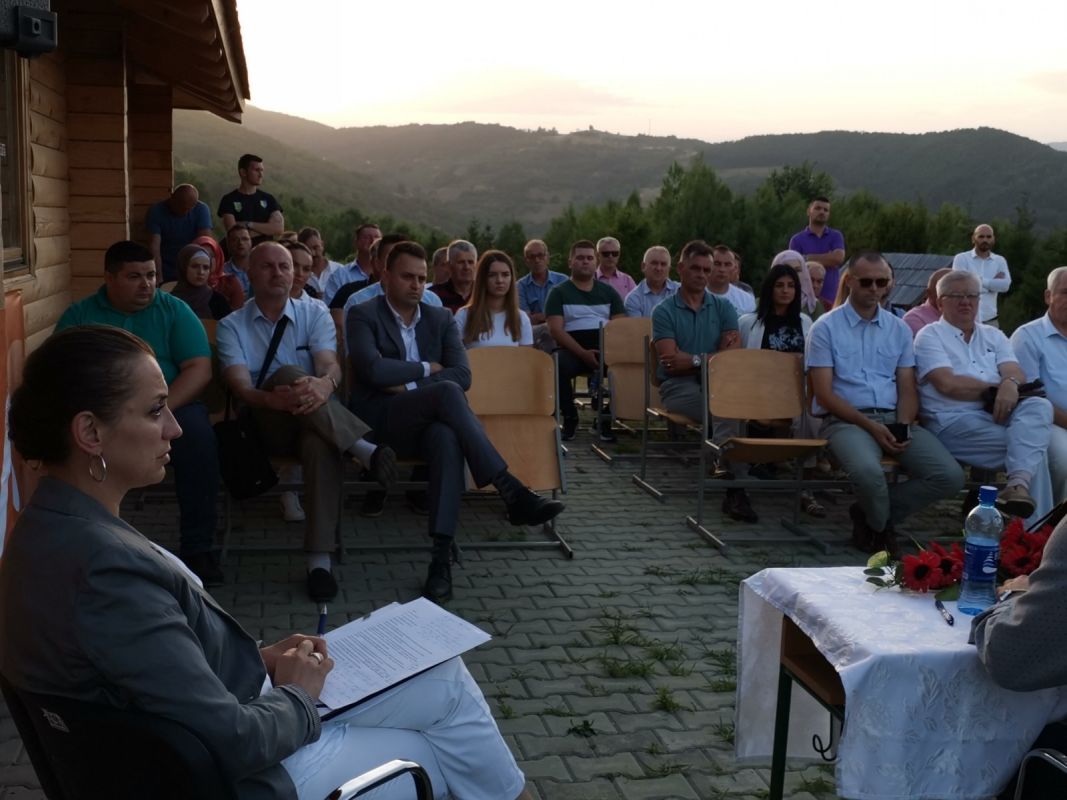As part of the commemoration of the 26th anniversary of the genocide in Srebrenica in July 1995, in the Posestre area near Goražde, in the "Memorial forest 8372" complex, a scientific forum "Obligation to remember committed crimes" was held.
On genocide and other crimes against values protected by international law committed in Bosnian Podrinje in 1992-1995. year, as well as the importance of scientific research on crime, was spoken by dr. sc. Muamer Džananović, research associate of the Institute for Research of Crimes Against Humanity and International Law, University of Sarajevo.
Džananović pointed out that the anniversary of the genocide against Bosniaks in and around Srebrenica is an opportunity and an obligation to talk about other crimes committed against Bosniaks.
"Srebrenica is a symbol not only of the crimes against Bosniaks during a few days in July, as an isolated case, but also on July 11, Srebrenica is a symbol of aggression and genocide against Bosniaks in 1992-1995. And it is an opportunity to remember other crimes, especially those that were not prosecuted. Everything that happened in Srebrenica from 1992 to the beginning of July 1995 is very much related to what happened after that. Continuity of crimes from the beginning of April 1992, difficult living conditions, no food, water, basic medical services , without electricity, extremely difficult conditions during the winter, with the constant arrival of people expelled from other areas occupied by the aggressor, in the fight for a minimum of food, obtaining the insignificant status of a safe zone, demilitarization, total blockade, in fact all these are facts and preconditions that contributed to commit barbaric crimes in front of the eyes of the whole world during July 1995," Džananović pointed out.
Most of the crimes in Podrinje have not been prosecuted
Džananović said that most of the crimes committed in Podrinje were not prosecuted. In his presentation, he focused on the July days from 1992-1995, and pointed out a number of examples of crimes from all Podrinje municipalities, and the facts about the events in Goražde from that period are particularly interesting. As an example, he cited the crime against the Čengić family in July 1992 in the Glamoč settlement of Gorazdan, in which the parents and two children, brother and sister Nerma (2 years old) and Nermin (11 years old), as well as their nana and aunt, were killed.
"During July 1992, 6 girls and boys from Gorazdan were killed and 28 were wounded," Džananović stressed.
He emphasized that no one was held accountable for the crimes committed during the VRS operation on Goražde in July 1992, nor for other crimes committed during the siege of Goražde.
Focusing on the July operations of the so-called The VRS from 1995 on the enclaves and safe zones of the UN Srebrenica, Žepa and Goražde pointed out that it is clear that the plan of the so-called VRS was occupying all enclaves. He proved this with numerous arguments and pointed out that by stopping the planned operation on Goražde, the international community tried to save "tarnished face" by surrendering its safe zones of Srebrenica and Žepa to the aggressor, thus practically complicit in the genocide.
Genocide denial and revisionism
In his presentation, Džananović attracted special attention by presenting documents from the Goražde District, as well as documents signed by IBOG commanders Ferid Buljubasic and commander of the 81st division Hamid Bahto, and the hero of Goražde's defense Zaim Imamović.
"This is an opportunity to talk, in addition to the crimes committed, about important events and personalities who defended their families and their people, which we must not forget, because on the scene is the mass prosecution of members of the ARBiH in the wider area of BiH, especially in Goražde, where you can see that the goal is to detain members of the ARBiH, but also to try to completely change the character of the war," Džananović believes.
"The goal is to turn heroic defensive-offensive operations and heroes into criminals and criminal operations. Genocide denial and revisionism are present, and that is why it is important to present the truth about crimes and events from the period of aggression and adequately protect them from forgetting," Džananović said.


